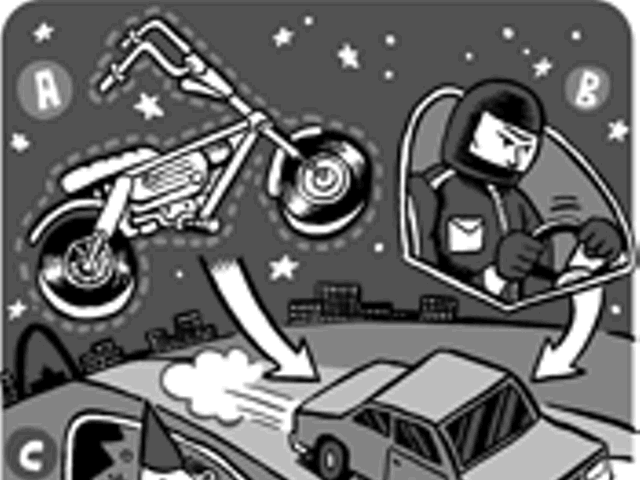When 22-year-old Conrad John Schuck Jr. began acting at the Cleveland Play House in 1962, he was simply John Schuck. Seven years later film director Robert Altman saw Schuck acting at the American Conservatory Theatre in San Francisco and promptly cast him as the dentist, the Painless Pole, in the 1970 movie MASH. Schuck became a part of the Altman stock company, acting in Brewster McCloud, McCabe & Mrs. Miller and Thieves Like Us. He also spent six years as Lieutenant Enright on TV's McMillan and Wife.
Success on television led Schuck back to the theater, including several appearances at the Muny. "I love playing it, though I do get paranoid about getting run over by the scenery booms," he says. "I remember the first time I appeared there, in Can-Can with Judy Kaye. I started an entrance. I think I was 31 at the time, and by the time I made it onstage I was 32."
Schuck made his Broadway debut in 1979 when he replaced Reid Shelton as Daddy Warbucks in Annie. "My first Annie," he recalls, "was a little girl named Sarah Jessica Parker." Parker went on to Sex and the City, but Schuck has stayed with Daddy Warbucks off and on ever since, including the 1996 revival.
"Throughout my career, my dad always wished I would use my full name, which would honor him," Schuck says. "Then nine years ago as we were starting the twentieth-anniversary revival, a proof of the poster came out. In huge letters it said: 'Nell Carter Starring in the 20th Anniversarry Production of Annie.' I thought to myself: No one's even going to know I'm in this show. So just to give myself more poster space, I added 'Conrad.' Which probably sounds pretty egotistical. But the ego reason promptly disappeared, because Dad was absolutely delighted and remains so to this day. Now he wants me to change my name for my film and television work too."
That's not happened yet. So, for instance, in Woody Allen's The Curse of the Jade Scorpion, he is still billed as John Schuck.
What's the difference between being directed by Robert Altman and Woody Allen? Schuck laughs before replying, "The big difference is that Robert Altman talks to you. I don't know that Woody Allen said anything to me in all the weeks I worked on the picture. He just leaves you alone. He would say, 'You stand here.' Everything was very technical.
"Altman gives you the feeling that you're the only person who should be playing that part. He works very casually. Maybe three days before we'd shoot a scene, we'd start running the lines. Then he'd get an idea. 'What if the conversation were more like this?' By the time we finally filmed it, the scene had this improvised feel. Then when you saw the finished product, you realized just how much control the director had all along. I have never met anyone else who works quite that way. He has a real gift."
Schuck's participation in a MASH tribute sponsored by the Fox Movie Channel rekindled old memories. "Because it was the first movie I'd ever been offered," he says, "I began to feel guilty when I kept falling asleep while reading the script. But as we made it, we really felt extraordinary vibrations about the work. Then we saw the finished film, and it was a deadly bore. That's when Altman's true brilliance came to the fore. He jumbled the continuity, he rearranged whole sequences, he added the loudspeaker as an actual character. Through his drastic re-editing, he created the film's sense of insanity.
"We took it to San Francisco for a sneak preview. During the first ten minutes the audience didn't make a sound. Then they began to laugh and holler and scream. When the film ended, they stamped and cheered for ten minutes. It was a very exciting evening. Seeing it again all these years later, the only thing that seems dated is the fact that in 1970 audiences were horrified by all the blood in the operating-room scenes. Today nothing seems to shock us. But the movie stands up as a classic, and I'm proud to be a part of it."
He's also proud of the current Annie. "It's a whole new physical production, with a new design," says Schuck. "Tom Meehan did new work on the book. So it has a freshness about it, which fits into my work ethic, which is that you'd better be giving 500 percent during the performance or why else do it? I hate a company that goes on automatic pilot. During the past 25 years I've done over 2,000 performances of Annie, and if the show in St. Louis isn't as fresh as the first time I ever did it, then we should go find another job. Can you imagine a brain surgeon saying, 'I don't feel like it today?' In the theater we do soul surgery. Especially with a show like Annie, we're developing the next generation of young audiences. What could be better than that? I feel it's a pretty good calling."





